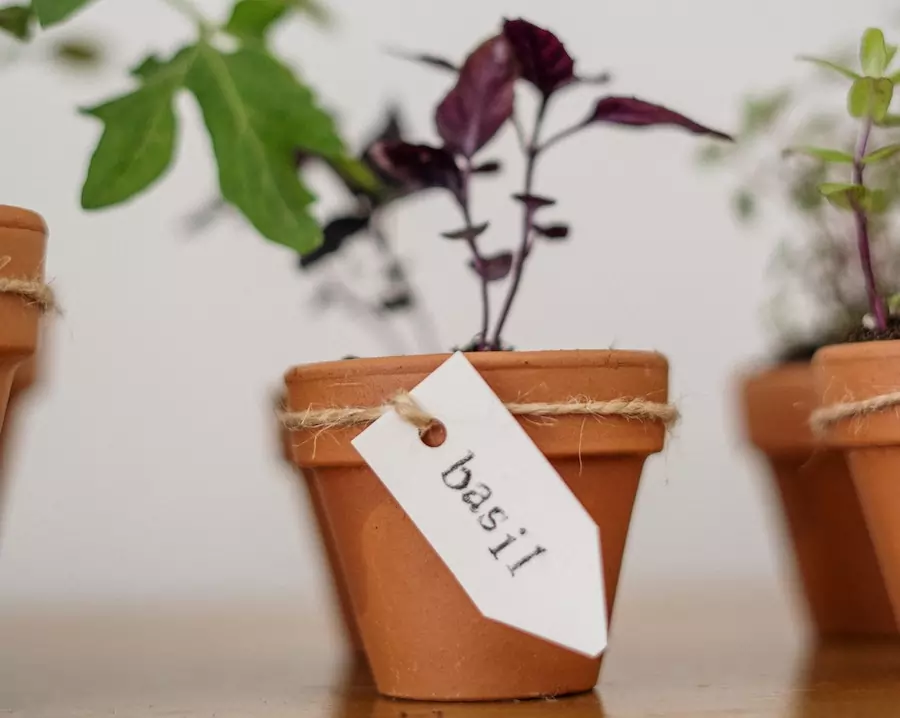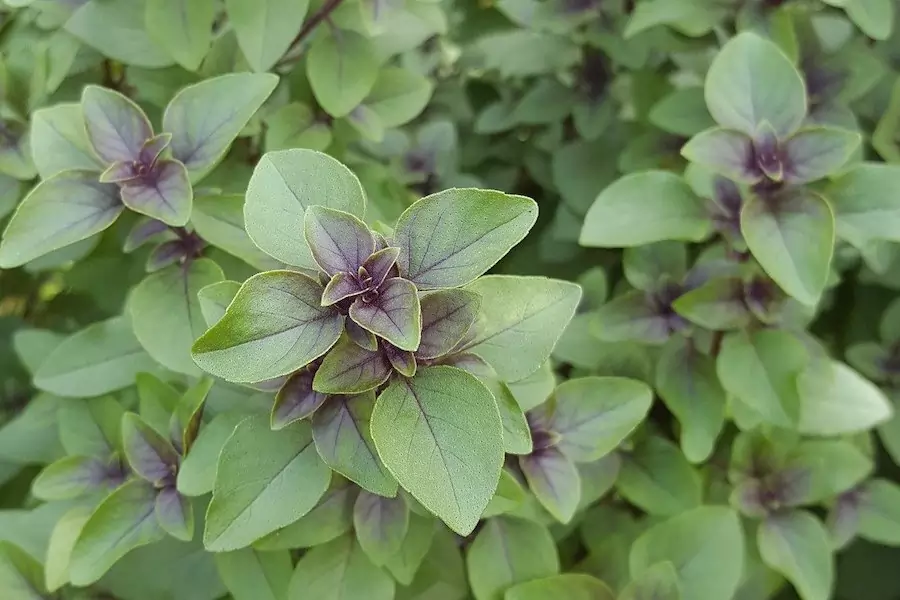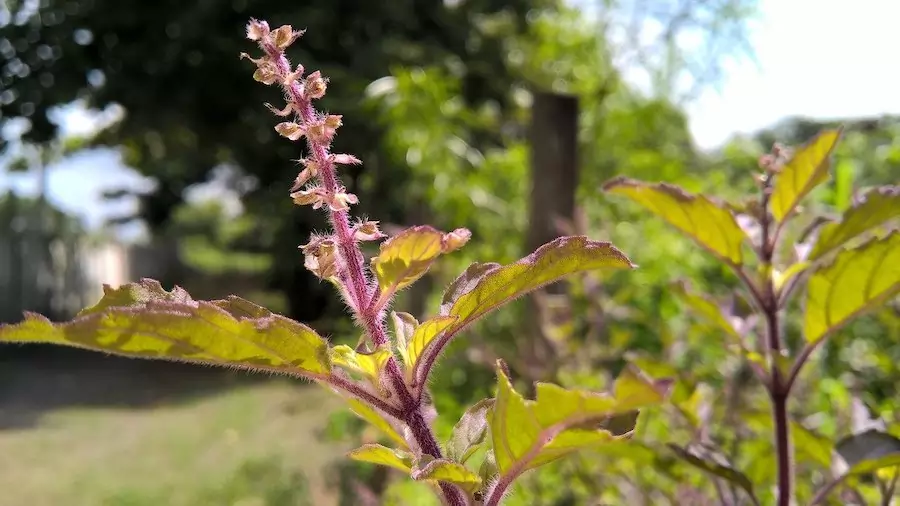Hello, you intrepid tea explorers! In this article, I’m going over the tulsi tea benefits you can gain from this super beverage.
I’ll give a quick roundup of the many benefits of tulsi tea, then we’ll head into the details…
Some tulsi tea benefits are that it soothes the body, boosts immunity, fights harmful bacteria, cleanses blood and liver, improves digestion, reduces inflammation in the body, boosts metabolism, reduces cholesterol, relieves stress and anxiety, prevents chronic diseases like diabetes & cancer, promotes eye health, speeds up recovery after injury and so much more!
That’s quite a rundown, but let’s start by taking a closer look at the source of tulsi tea.
The source of tulsi tea
Tulsi is a holy plant in Indian culture and is known as ‘the queen of all herbs.’
It has many different names in the Indian languages: Tulsi, Tulasi, Holy Basil, and others.
It’s made from the holy basil plant, which is native to India but can be found growing in other climates as well.
Tulsi grows easily in most conditions and requires very little maintenance once it starts taking off.
It’s quite likely that you’ve seen tulsi growing around your neighborhood or somewhere nearby! You might have even started your own tulsi tea plant (Ocimum tenuiflorumat) at home!
In the home, it can be used as an insect repellant and a mild disinfectant.
It’s part of the mint family and has green to purple leaves. The tulsi tea benefits come from roasting the dried tulsi leaves in oil at high temperatures and then mixing them into tea.
Replant tulsi every few months for the best results.
Keen to give tulsi tea a try? Then why not look at growing your own plant, or for convenience, head over to amazon for some quality original and organic tulsi tea.

Tulsi tea benefits
There are many health benefits to drinking tulsi, so let’s run through the 21 tulsi tea benefits…
1. Reduces blood pressure:
Tulsi tea may lower blood pressure and hypertension: Drinking tulsi tea regularly can reduce both systolic and diastolic blood pressure.
It prevents plaque buildup on artery walls, making it ideal for preventing heart disease by keeping your blood vessels clear of obstruction.
2. Support for diabetes:
Drinking tulsi tea benefits those with diabetes: tulsi tea may fight blood sugar spikes and drops by slowing down the rate at which food breaks down into glucose.
However, consult your doctor before drinking tulsi tea …as reports have shown it can drive sugar levels down too low in some cases.
3. Relief for arthritis:
Tulsi tea can be beneficial for arthritis pain relief: tulsi has anti-inflammatory properties, making it ideal for pain management during flare-ups of the condition.
4. Rich in antioxidants:
Like many other teas, tulsi tea is rich in antioxidants: tulsi has more antioxidant activity than many other popular teas, especially green tea.
5. Supports respiratory function:
Tulsi tea benefits the respiratory system by breaking up phlegm and mucus, making it great for those with colds or congestion. It assists in dealing with respiratory problems such as asthma and bronchitis by making it easier to cough up phlegm in the lungs.
6. Antibacterial properties:
It’s also beneficial for fighting bacterial infections like strep throat, sinus infections, and more.
7. Reduces anxiety:
Tulsi may benefit the nervous system by calming anxiety and stress levels while simultaneously improving focus and mental clarity. See my post too on the benefits of zen tea.
8. Improved Digestion:
Like many teas, tulsi is a natural antioxidant and anti-inflammatory.
So it helps prevent further damage from being done to the gastrointestinal system which would normally lead to indigestion or other digestive issues, stomach aches, and diarrhea. It also helps clean out your bowels!
9. Natural Antibiotic Properties:
The tulsi plant is known for its powerful antibiotic properties, antiviral qualities, and anti-fungal effects.
It can help fight off candida and yeast infections, while also helping to relieve common colds which are attributed further to its decongestant and antihistamine-like qualities.
Alongside this, it has antiviral and antifungal properties that make it a great all-rounder when it comes to fighting infections
10. Reduces Stress:
Tulsi tea is rich in certain essential oils and enzymes which help to reduce stress and anxiety levels, while also helping to lower blood pressure and cortisol levels.

11. Boosts Immunity:
The many antioxidants contained in tulsi tea promote a stronger immune system, making it easier for the body to fight off infections and diseases.
12. Increases Energy:
Tulsi tea contains significant amounts of potassium which is responsible for regulating healthy blood pressure levels, aiding in the restoration of electrolytes, and helping to keep the body hydrated. As a result, tulsi tea can help increase energy levels.
13. Lowers Cholesterol:
Tulsi tea contains saponins which help to reduce levels of bad cholesterol and triglycerides in the blood. As a result, tulsi tea can lower your risk for cardiovascular diseases such as atherosclerosis and heart attack.
14. Prevents Cancer:
The antioxidants present in tulsi tea neutralize free radicals which can be harmful to the body’s cells and result in the development of cancerous cells.
15. Reduced Menstrual Pain:
Tulsi tea helps to relax the muscles around the uterus which leads to reduced menstrual pain and cramps.
16. Prevents Kidney Stones:
The diuretic properties present in tulsi tea helps to clear toxins from the body. And in so doing helps to clean the system which in turn reduces the build-up of kidney stones.
17. Prevents Premature Greying:
The antioxidants present in tulsi tea, and the assistance with removing free radicals, can also lead to hair loss and premature greying. Tulsi helps to stop the process and restore hair color and shine.
18. Weight Loss:
The diuretic properties of tulsi tea help detoxify the body as much as green tea would, and help to reduce bloating.
I also wrote a previous article you might want to check out, on a range of teas that can also help to reduce bloating. Or more specifically, green tea to reduce bloating.
19. Boosts Vitamin C Levels:
Tulsi tea has high levels of Vitamin C which help strengthen the immune system, helping your body fight common illnesses such as colds and coughs.
20. Supports Urinary Function:
Tulsi tea is an excellent diuretic that helps the body remove toxins and waste by promoting urination.
21. Improves Skin Conditions
Because of Tulsi tea’s antibacterial qualities, It has been used as a natural acne treatment and for skin ailments. Tulsi leaves destroy pathogenic microorganisms while also purifying the skin when applied topically, or the blood when ingested.
So let’s take a quick look at the side effects of tulsi tea.

Check out the benefits of ginger tea.
Side effects of tulsi consumption
In terms of side effects, tulsi in general does carry some risks.
Studies have shown that tulsi should be avoided for pregnant women, or those trying for children, certain diabetic patients, and those on anti-clotting medications. Over-consumption can cause liver damage, nausea, diarrhea, rapid heartbeat, and convulsions.
You should also not chew tulsi leaves as this can be harmful to your teeth.
However, unless you fall into a risk group, then there are few side effects you should experience, provided you are sensible with the amount you drink. Obviously, this is not intended as medical advice, so be sure to consult with your doctor if you’re unsure on how to proceed.
Here’s when to drink tulsi tea…
When to drink tulsi tea for best effects?
Drink 1 cup of organic tulsi tea 1 hour after eating for month-long effective results.
The best time to drink tulsi tea is in the morning or before bed because it has calming properties, which help to relieve stress and promote restful sleep.
If you’re looking for an energy boost, you can also drink tulsi tea in the morning or afternoon as a great pick-up.
See also my list of best teas to drink in the morning. Or my list of best teas before a workout.
How to make a cup of tulsi tea
Tulsi or holy basil can be purchased in many forms: fresh leaves, powder, and dried leaves (which are usually used for teas).
The best way to drink tulsi is as a hot or iced (and unsweetened) tea!
Tulsi tea is made by steeping a half cup of holy basil leaves in hot water for 10 to 15 minutes. You can then remove the leaves and drink, or steep for a stronger flavor.
Can you drink tulsi tea every day?
Tulsi tea can be a great daily beverage, but like most teas, be aware of how much you are consuming. One cup per day should be sufficient to gain the full range of benefits.
See also my article on how many cups of tea you should drink of each type.
Is tulsi tea good for sleep?
Tulsi tea is often used as a mild sleep aid, but the dosage is important. As I mentioned earlier, one cup, drank an hour or so before bed is the ideal amount.
See my article on chamomile tea and sleep …or the benefits of lemon zinger tea at night.
That was the list of tulsi tea benefits…
Wow, what a list of benefits. It’s almost enough to rival the benefits of green tea! But provided you are sensible in your approach you should be able to reap the benefits of this awesome beverage.
I’d say not to rely on it as your daily beverage, but more to have it in your tea caddy as a drink to take weekly or occasionally alongside other teas … just for that added boost in some health benefit areas.
Tulsi tea benefits…
So that was the full rundown of the 21 tulsi tea benefits. It’s quite a list. Just be sure to take note of the side effects and like most teas, it’s a case of “all things in moderation”.
Get your tulsi tea here, and don’t forget to check out my super tea course.

Take the fast track and become a tea connoisseur
Whether for enjoyment or considering a career as a tea sommelier. This course has everything you need to enhance your tea knowledge and tea-tasting skills.
This course keeps it simple with step-by-step tea tasting and easy reference guides
For pleasure, or as a precursor to a career in the tea industry. Find out what tea sommelier actually does, their career paths, and what they earn.

Find out more about the Teahow Tea Sommelier Course!
